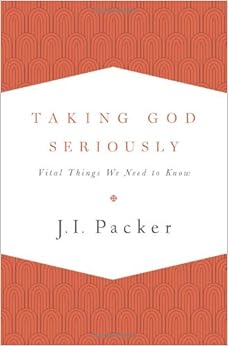 First, what is the unity of the Spirit? It is a given reality that results from the involvement of many people not only with the Holy Spirit but also, through the Spirit, with the incarnate Son who is currently, by the Father’s appointment, the church’s and the world’s rightful Lord, and with the Father himself, the eternal Father of the eternal Son, who has become our adoptive Father through Christ (see Rom. 8:14–17; Gal. 4:4–7; 1 John 3:1–2). Christ himself put the Holy Spirit’s ministry in focus when he said, “He will glorify me, for he will take what is mine and declare it to you” (John 16:14). And Christ and his glory are central in every aspect of the Spirit’s post-Pentecost ministry, whether it be illuminating our minds to understand the person, place, and saving performance of Christ, or generating faith in Christ and uniting us to him in his risen life, or transforming us individually into the moral image of Christ, or bonding the church together in its growth toward corporate maturity in Christ.
First, what is the unity of the Spirit? It is a given reality that results from the involvement of many people not only with the Holy Spirit but also, through the Spirit, with the incarnate Son who is currently, by the Father’s appointment, the church’s and the world’s rightful Lord, and with the Father himself, the eternal Father of the eternal Son, who has become our adoptive Father through Christ (see Rom. 8:14–17; Gal. 4:4–7; 1 John 3:1–2). Christ himself put the Holy Spirit’s ministry in focus when he said, “He will glorify me, for he will take what is mine and declare it to you” (John 16:14). And Christ and his glory are central in every aspect of the Spirit’s post-Pentecost ministry, whether it be illuminating our minds to understand the person, place, and saving performance of Christ, or generating faith in Christ and uniting us to him in his risen life, or transforming us individually into the moral image of Christ, or bonding the church together in its growth toward corporate maturity in Christ.  Should the revealed doctrine of Christ be diminished or distorted, or personal faith, repentance, and discipleship be dissolved into conformist “churchianity,” or mutual loving service give way to soulless organized routines or to bitter animosity in conflict and division, or interest in the spiritual advance of individuals and of the church as a whole be lost, then the unity of the Spirit would be radically damaged, and Christ himself deeply dishonored.
Should the revealed doctrine of Christ be diminished or distorted, or personal faith, repentance, and discipleship be dissolved into conformist “churchianity,” or mutual loving service give way to soulless organized routines or to bitter animosity in conflict and division, or interest in the spiritual advance of individuals and of the church as a whole be lost, then the unity of the Spirit would be radically damaged, and Christ himself deeply dishonored.... Keeping in mind the God-given unity and destiny of the universal church will make us work hard to preserve and display its unity at the local level for the glory of Christ, who is its Head, its hope, and its life.
Packer, J. I. (2013). Taking God Seriously: Vital Things We Need to Know (pp. 56–60). Wheaton, IL: Crossway.

Comments